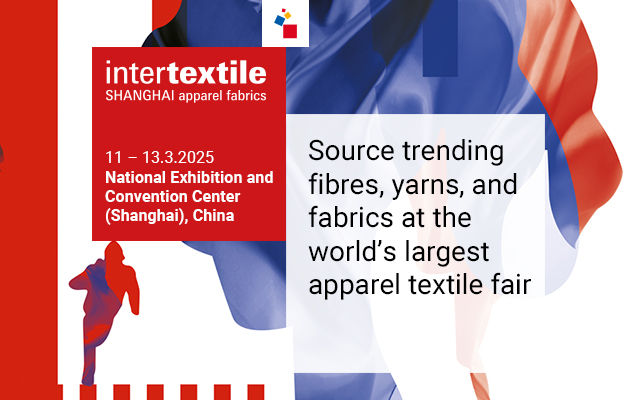The loud objective of "free trade" has been a figmentof imagination of some policy formulators or even the professed objective ofsetting up well-intentioned international organization like World Trade Organization,but the world apparel trade has been anything but fair. While prior todismantling of Multi-Fibre Agreement, which was based essentially on quotasbeing decided between the parties concerned, the period thereafter cannot betreated as one ensuring "Free Trade" as was the objective enshrinedin the constitution of WTO.
It has not taken much long for the Western governments tounderstand that "Free Trade" does not preclude discriminatoryattitude and policy, suited to what are to be called their national interest.They also know fully well the preponderating role that the textile and garmentindustry plays in their economies and exports. Therefore, anything that affectsthe garment exports from the developing countries would make huge and evendisproportionate impact on their governments and trade. This has obviously madedeveloped countries somewhat inconsiderate, at times, even harsh in single-mindedpursuit of their political and economic objectives. Their actions in severalcases bear no relationship with the cause.
It is in this context that one needs to examine as to howand why the European Union has decided to cut off GSP+ from Sri Lanka for alleged human rights violations in the war against the Tamil Tigers. It is because theEU knows that garment exporters are any far the largest industrial employer in Sri Lanka, since 41 % of their total exports consists of garment exports and nearly 50% ofthese exports are being shipped to the European Union. This has been madepossible because of the EU having granted Sri Lankan exports the status of dutyfreeimports. This can simply spell disaster for the Sri Lankan economy. If viewedin the proper context, Sri Lankan garment industry is one of best and mostforward looking in the world, as would stand corroborated by the fact that twoSri Lankan factories Brandix and Hirdaramani have recently built factories thatleave zero carbon footprint. The Sri Lankans have also been hot pursuing andlegitimately proud of "garment with guilt", which few nations canmatch, and yet the future of their garment export is somewhat blurred.
What has been done by the European Union to Sri Lanka, has been replicated by the US, who has decided to revoke Madagascar's AGOA status, on theground of alleged election fraud. Probably, the Americans expect the same levelof refinement in the elections by Madagascar as they have in their own country,which is highly unlikely or even possible. The sufferers in this case are theindustrialists from Korea, Taiwan and Hong Kong, who have set up their textileunits in Madgascar. With a single stroke, the US can in fact has createdsituation where the flight of foreign investment would be real and massive.
The story does not end here and with small countries. It maybe small countries, whose principal prop is garment exports, who are thevictims today, but getting encouraged both the US and the EU could attemptsomewhat similar treatment with the bigger economies too. As everybody knownthe Obama Administration is moving ahead fast towards a new environment policy,which will ensure a lead role for the US. The Obama Administration isreportedly considering penalizing those countries, which are the culprits ofpollution with a clear perception that the US companies and customers shouldnot look overseas to exporters, who enjoy the advantage of lower cost becausetheir industry is free to pollute.
Whatever strategy the EU and the US have adopted towardslesser countries, may not be suitable for the bigger countries from within theother world, who are heavily polluting the atmosphere. As we have seen onlyrecently at the Climate Change Conference in Copenhagen, a meaningful voluntaryagreement seems highly unlikely. Now, there are two options for the policingnations. One, either the exporting countries enter into a binding agreement toreduce green house gasses or second, importing countries impose countervailingduties to offset any cost benefits arising from lower pollution standard.
As everybody knows US and China are the most two pollutingnations in the world. Adopting a different attitude and policy towards itsindigenous industry than for other countries, the US can always be trusted tobring even China in his sweeping action for reduction of pollution and carboncontrol. It is also well known that China has refused to go by any voluntarybinding agreement to reduce carbon, the US will be left with only the secondoption i.e. imposing countervailing duties on Chinese imports. However, thereis a snag here. Imposition of countervailing duties, in such situation, runscontrary to the WTO rules, once the country (in this case, the US) has alreadyratified the WTO treaty and has thereby become a US law, which takes precedenceover all other US laws with the exception of US Constitution itself.
The US has very limited and constrained choice and has tostruggle to find out ways and means or loopholes, which can be exploited forapplying countervailing duties on China. If it is done in case of China, can India be far behind, since India has offered only voluntary reduction of carbon emission,but totally and completely refuses to be bound by that or even allow monitoringof their efforts in carbon reduction by any agency, including internationalagency. Even the fact that India's contribution in carbon emission is less thanone-fourth of Chinese carbon emission and for this reason alone, India should not be treated at par by the US and any international agency, with China.
Originallypublished in Stitch Times: March 2010







Comments